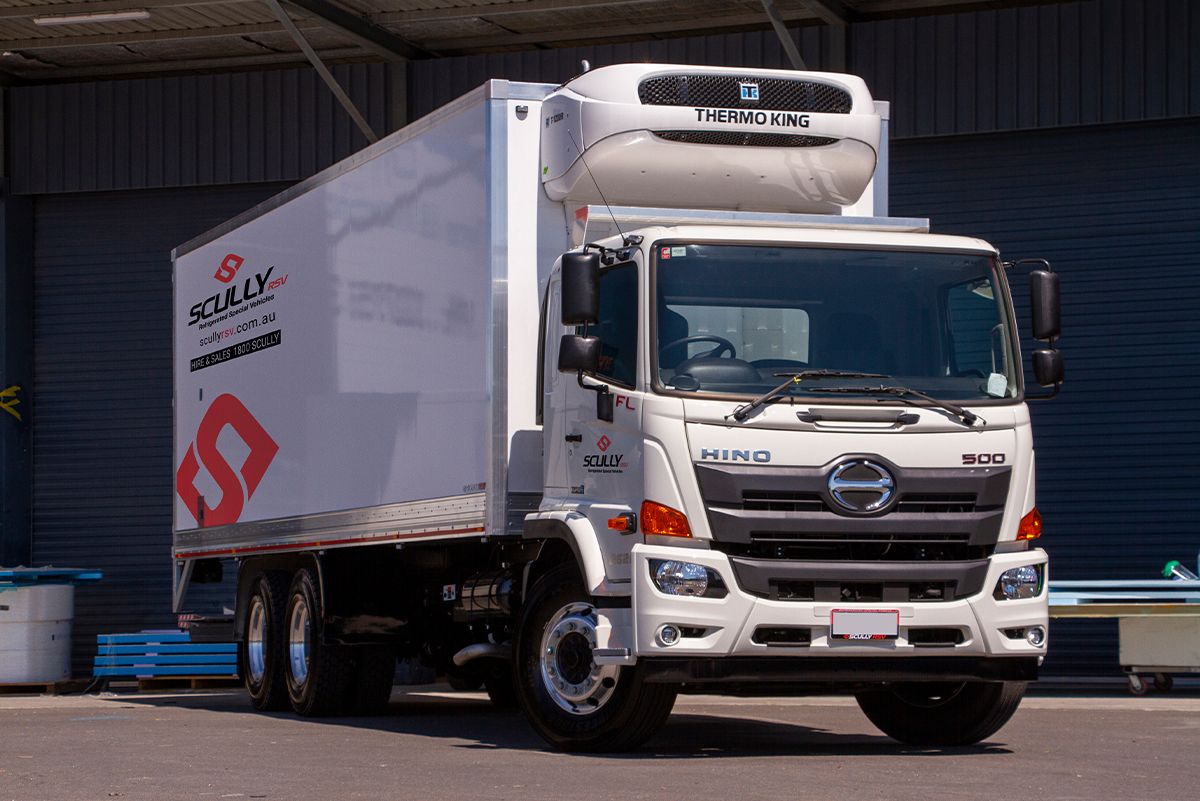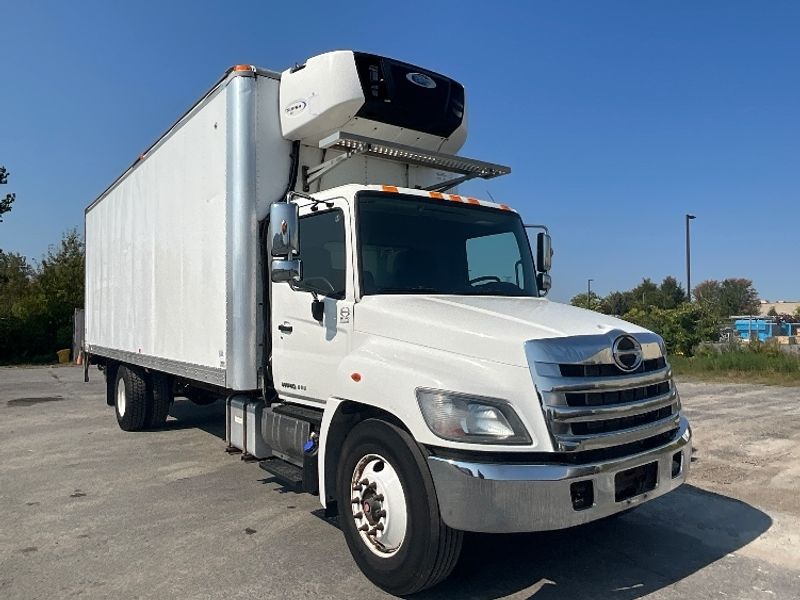Thermo King Truck Refrigeration: Reliable Cooling Down for Your Fleet
Thermo King Truck Refrigeration: Reliable Cooling Down for Your Fleet
Blog Article
Choosing the Right Transportation Refrigeration System for Your Fleet
Picking a suitable transport refrigeration system for your fleet is a vital decision that can significantly influence operational efficiency and item honesty. It necessitates a detailed understanding of your particular refrigeration needs, consisting of temperature level needs and delivery timetables.
Comprehending Your Refrigeration Requirements
When picking a transportation refrigeration system, understanding your details refrigeration requirements is extremely important to making certain item quality and compliance with industry standards. Numerous aspects need to be considered to establish one of the most suitable system for your operation. These consist of the sort of products being delivered, their temperature needs, and the duration of transportation.
For perishable products, such as fresh fruit and vegetables or pharmaceuticals, specific temperature control is critical. Recognizing the temperature array required for every item permits the choice of a system that can maintain those conditions constantly. In addition, take into consideration the regularity of distributions and the distance took a trip; longer journeys might necessitate systems with enhanced insulation or back-up power alternatives to stop temperature fluctuations.

Furthermore, the ability of the refrigeration system should line up with your lots dimension. By thoroughly assessing these elements, you can make sure that your selected transport refrigeration system successfully satisfies your operational needs and maintains product integrity.
Kinds Of Transport Refrigeration Equipment
Selecting the best kind of transportation refrigeration system is essential for making sure the safe transit of temperature-sensitive products. There are a number of systems offered, each created to meet certain requirements and applications.
The most usual types consist of direct development (DX) systems, which use cooling agent to absorb heat and cool the freight area efficiently. These systems are commonly preferred for their performance and reduced preliminary expenses. Another alternative is the main refrigeration system, which offers multiple compartments or lorries from a single compressor device. This is especially useful for larger fleets needing consistent temperature level control throughout different transportation systems.
In addition, there are self-supporting refrigeration units that incorporate the compressor and evaporator in one bundle. These units are perfect for smaller cars or when space is restricted. For specialized applications, such as carrying perishables or pharmaceuticals, cryogenic refrigeration systems may be utilized, utilizing liquid nitrogen or carbon dioxide to preserve ultra-low temperature levels.
Finally, hybrid refrigeration systems that integrate electrical and diesel power are coming to be progressively popular, offering flexibility in energy use and decreasing environmental effect. Recognizing these various types permits fleet drivers to make enlightened decisions customized to their specific functional needs.
Secret Functions to Take Into Consideration
Exactly how can one guarantee that a transport refrigeration system satisfies all operational requirements? To achieve this, numerous crucial features should be very carefully evaluated. Temperature control is essential; systems must offer accurate temperature level settings to fit different items, varying from iced up items to perishable items.
Energy effectiveness is one more crucial factor to consider, as it influences our website operational prices. Look for systems that utilize advanced technology, such as variable rate compressors, to optimize a knockout post power usage without jeopardizing performance.
Another feature to analyze is the reliability and resilience of the devices. Systems constructed from top quality materials and made for strength against harsh problems will certainly minimize maintenance costs and downtime.
In addition, the convenience of upkeep and accessibility of components can substantially influence functional effectiveness (thermo king truck refrigeration). Features like modular layouts or remote monitoring capacities can streamline solution processes
Finally, compatibility with existing fleet management software application can boost tracking and reporting procedures. By focusing on these crucial attributes, fleet operators can make sure that their transport refrigeration systems not just fulfill current needs yet likewise adjust to future demands.

Budgeting for Refrigeration Solutions
Evaluating key attributes of transportation refrigeration systems is just one component of guaranteeing operational efficiency; budgeting for refrigeration options is similarly crucial. A well-structured budget not just includes the initial acquisition rate however also considers lasting functional costs, consisting of power consumption, maintenance, and possible repair work needs.
When developing a budget plan, fleet managers need to first assess the complete expense of ownership (TCO) This consists of not only the procurement expenses but additionally ongoing expenditures associated to fuel performance and the sturdiness of the refrigeration units. Choosing systems with higher power efficiency scores may produce significant cost savings gradually, reducing ahead of time costs.
In addition, fleet operators need to account for possible scalability. As businesses expand, the refrigeration needs may transform, necessitating upgrades or extra units. Planning for these future expenditures can avoid economic strain.
Financing alternatives can also play a crucial function in budgeting. Leasing, financings, or outright purchases each have distinctive financial ramifications, and recognizing these can help in making a notified choice. Inevitably, an extensive budget plan that considers both future and instant demands ensures that transport refrigeration systems contribute favorably to the total operational effectiveness of the fleet.
Upkeep and Assistance Alternatives
In the realm of transport refrigeration systems, efficient maintenance and assistance alternatives are critical for guaranteeing ideal performance and durability. Routine upkeep is necessary to prevent break downs and preserve the stability of temperature-sensitive cargo. It is recommended to establish a routine evaluation routine with qualified specialists who can carry out required checks and repair services on refrigeration systems.
Support options ought to include a robust solution arrangement, covering both regular upkeep and emergency repair work. This guarantees that your fleet has access to prompt assistance, see this decreasing downtime and keeping functional effectiveness. Numerous manufacturers offer comprehensive assistance bundles that include training for your staff, allowing them to do fundamental troubleshooting and maintenance jobs.
Moreover, using remote monitoring technology can boost your maintenance strategy - thermo king truck refrigeration units. These systems offer real-time data on temperature level and performance, enabling positive steps prior to problems escalate. Buying training and innovation not just improves your fleet's reliability yet likewise expands the life expectancy of your refrigeration systems
Ultimately, a critical technique to maintenance and assistance will guard your investment and ensure that your transport refrigeration systems run at peak effectiveness, delivering constant outcomes for your service.

Final Thought
In final thought, selecting the ideal transportation refrigeration system for a fleet requires a comprehensive evaluation of details refrigeration requirements, system types, and crucial attributes. Furthermore, mindful budgeting and preparation for future scalability will add to the long-term success of the refrigeration approach.
Choosing an appropriate transportation refrigeration system for your fleet is an important decision that can dramatically affect operational performance and product honesty.When choosing a transportation refrigeration system, comprehending your details refrigeration requirements is extremely important to making sure product high quality and conformity with market criteria. By thoroughly examining these aspects, you can make sure that your picked transport refrigeration system properly meets your operational demands and maintains product honesty.
Ultimately, a detailed spending plan that considers both future and immediate needs makes sure that transportation refrigeration systems contribute positively to the general functional efficiency of the fleet.
In final thought, choosing the ideal transport refrigeration system for a fleet requires a complete evaluation of particular refrigeration requirements, system kinds, and crucial features.
Report this page